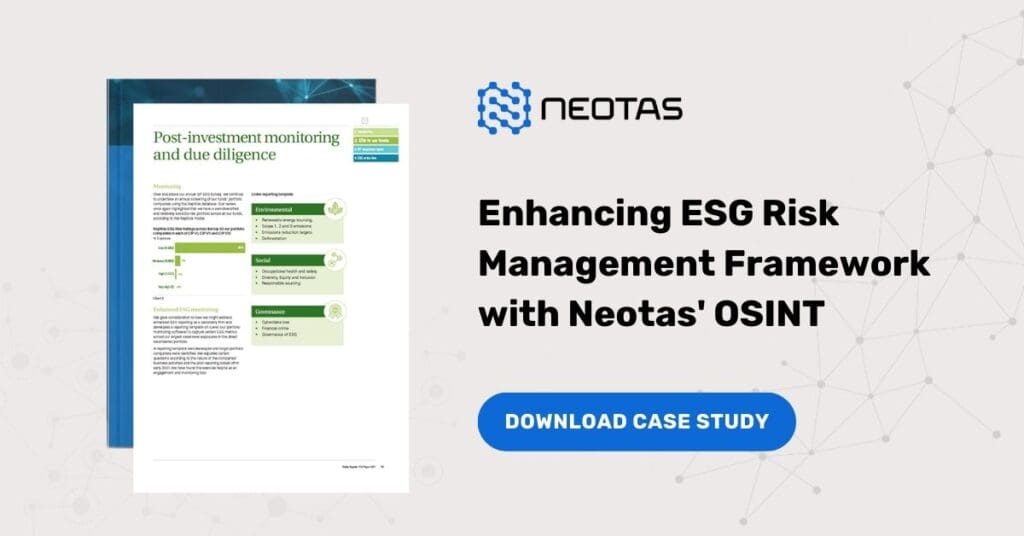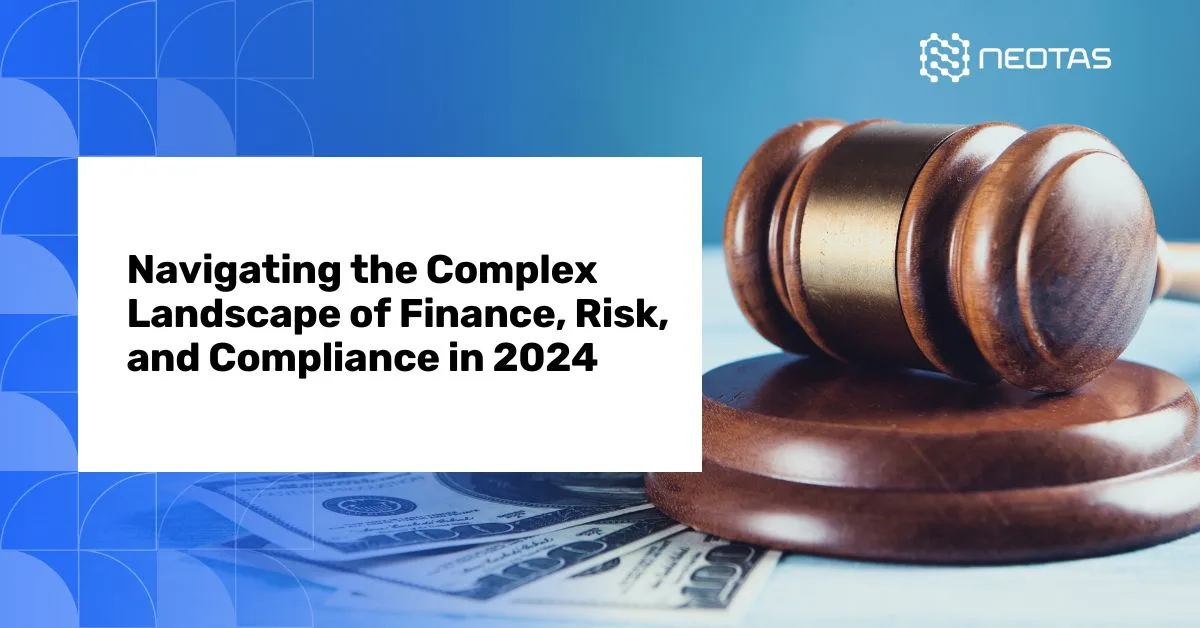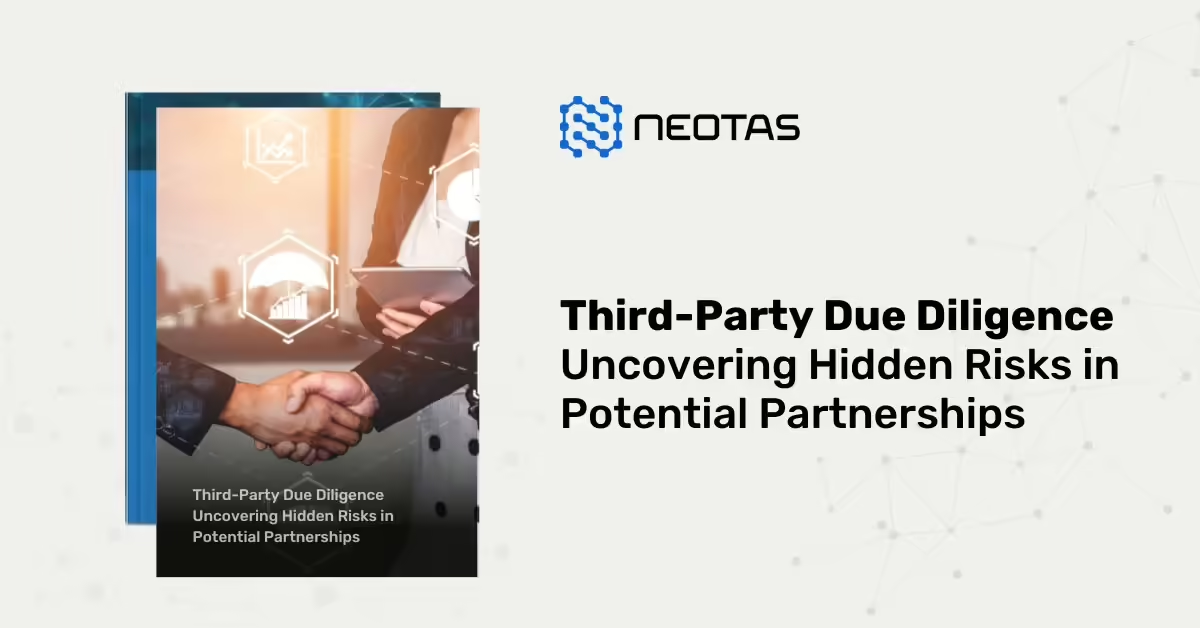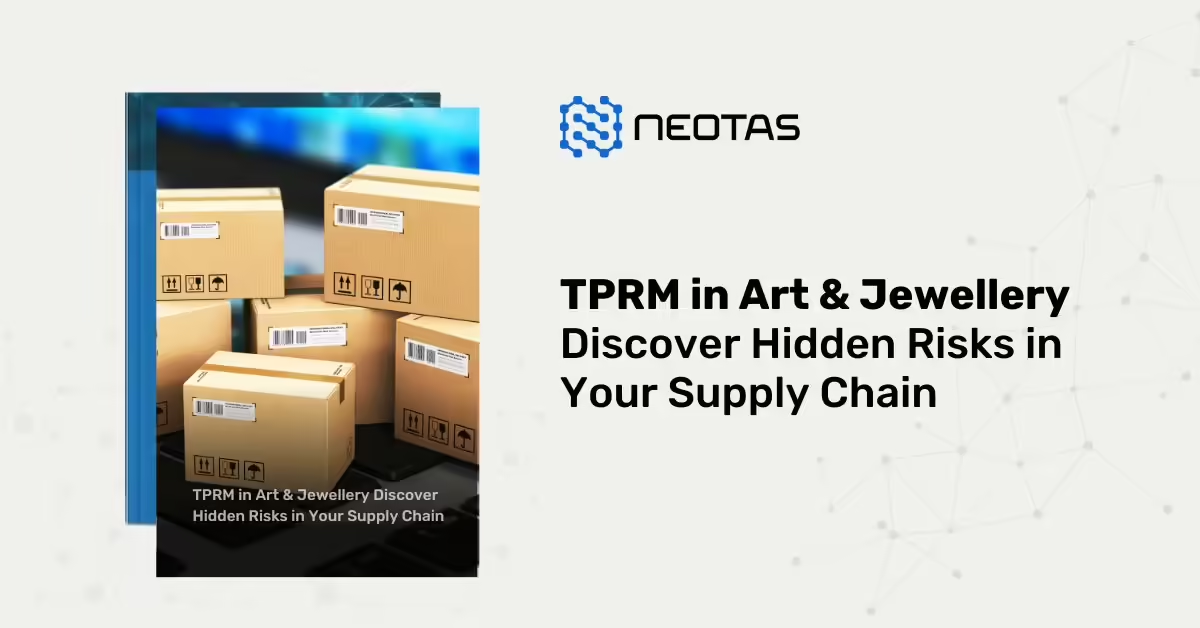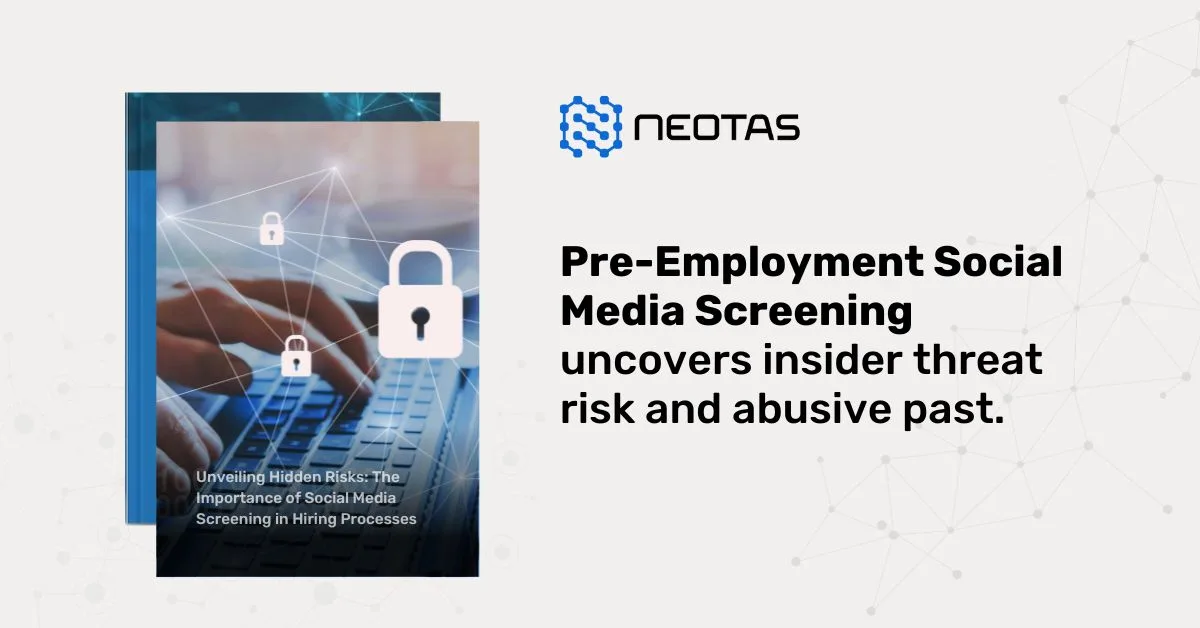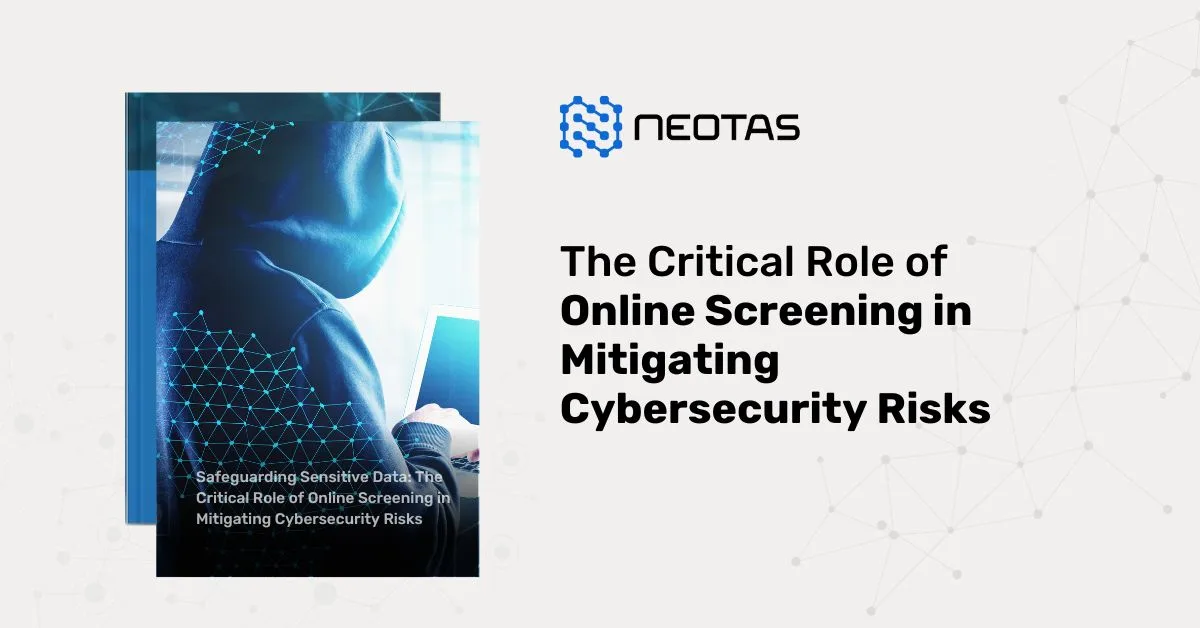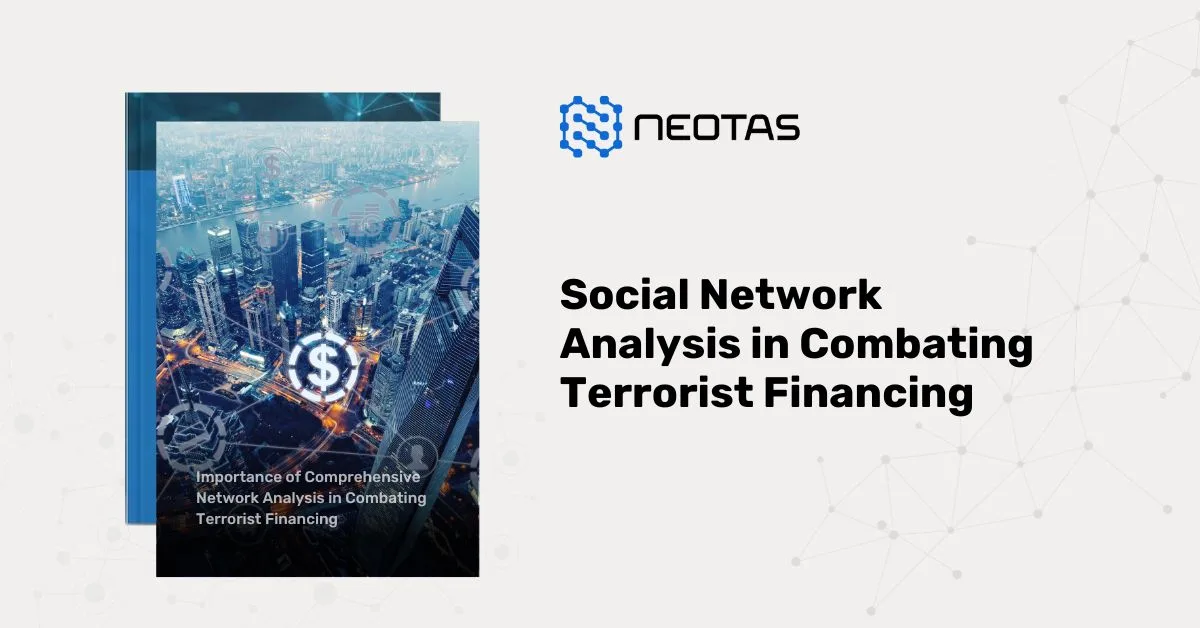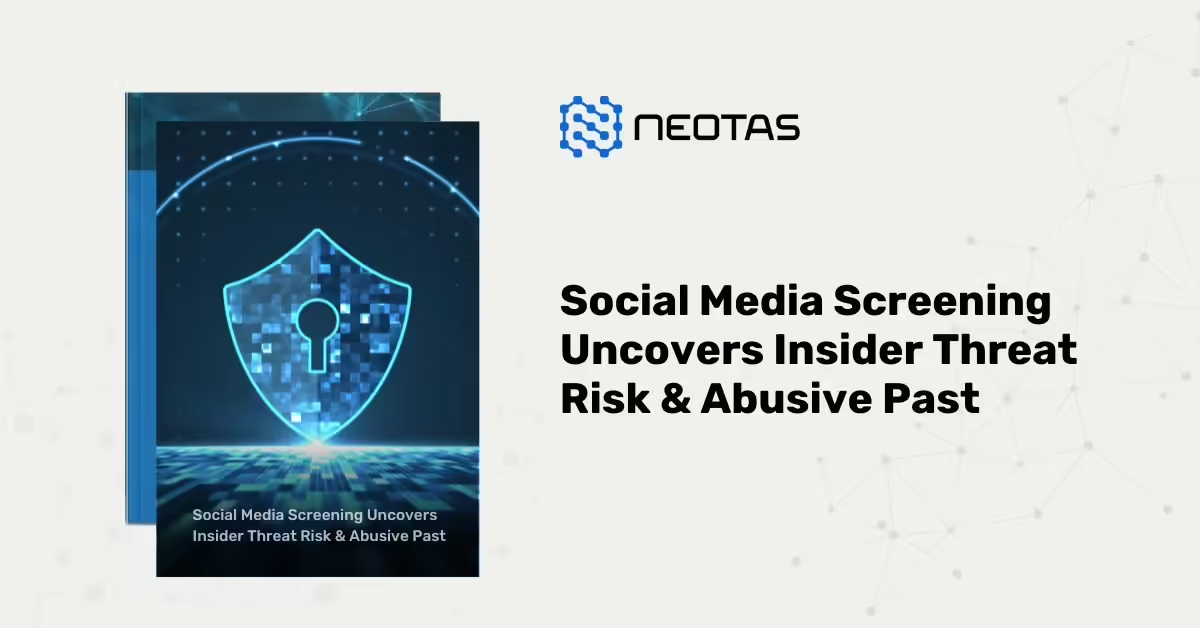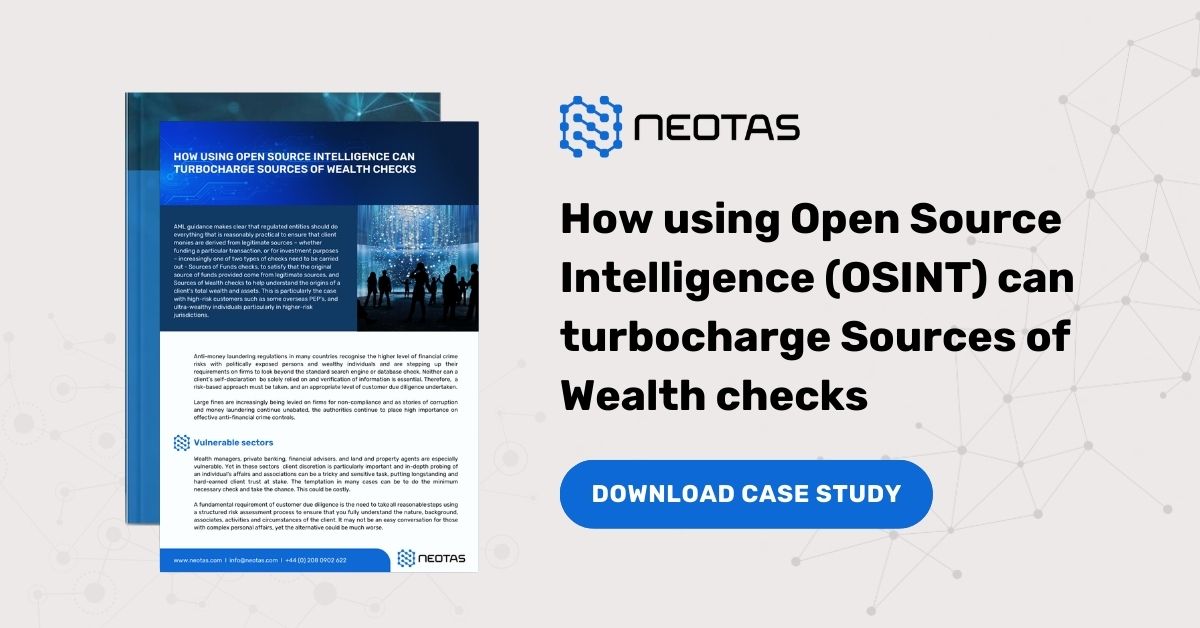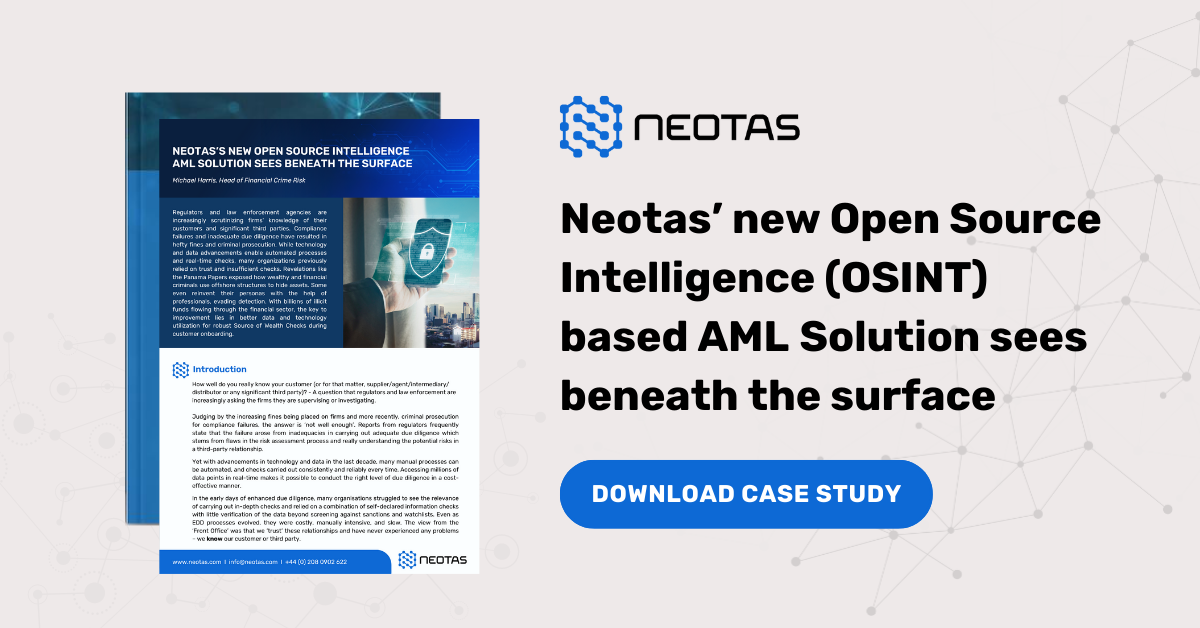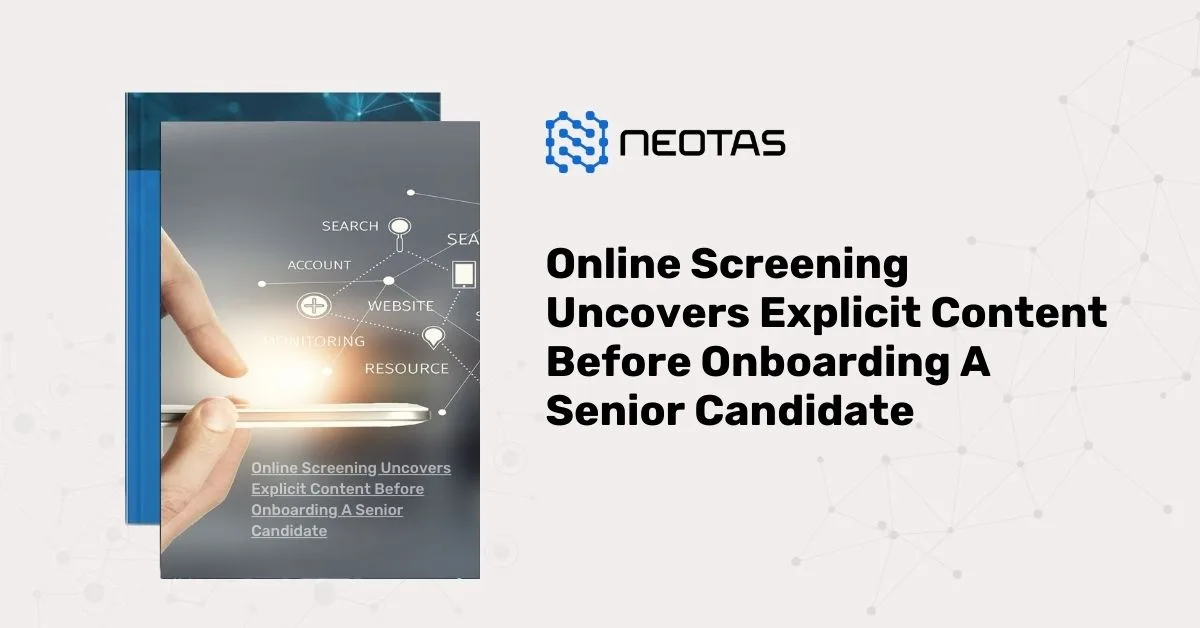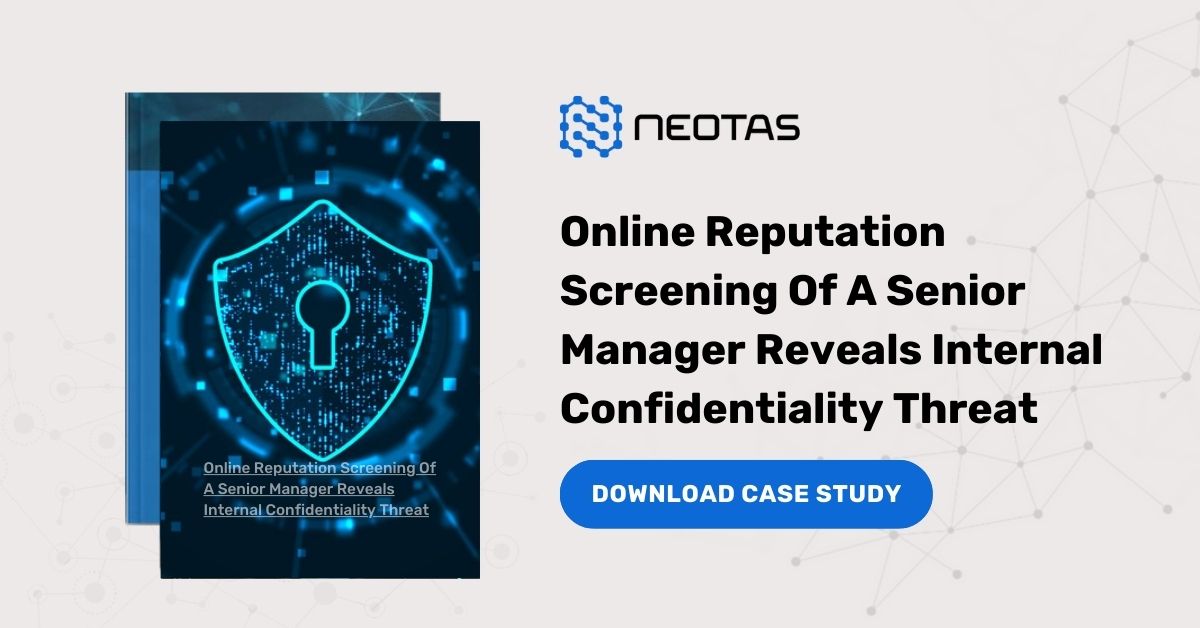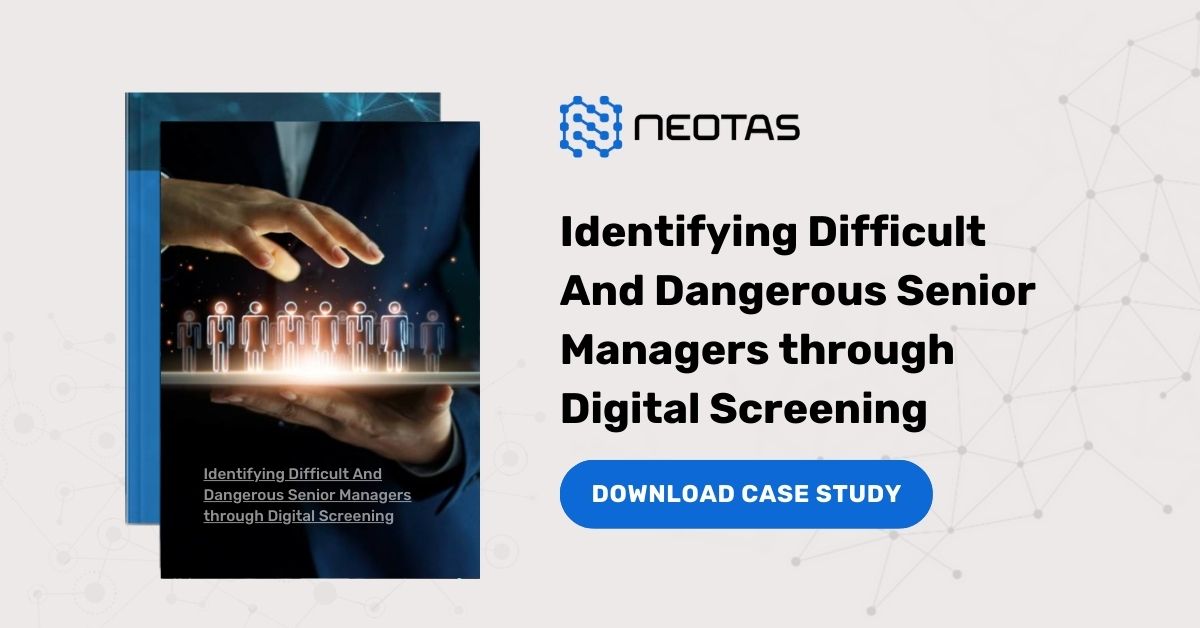ESG Risk Management Framework with Neotas’ OSINT Integration
Neotas is delighted to be chosen by Coller Capital, as a service provider for enhanced ESG due diligence on their investments, integrating OSINT into their ESG risk management framework.
- Coller Capital has released its 2021 ESG Report, presenting the ESG policies and practices of the Firm and the GPs managing our funds’ assets. In their 2021 ESG Report, Coller Capital highlighted the power of OSINT in providing valuable insight beyond what is typically self-reported. This is critical at the initial investment stage and ongoing monitoring of the portfolio, to identify any red flags which need to be addressed throughout the funds’ lifecycle.
- This paper explores how Neotas work with Coller Capital, and how open-source intelligence (OSINT) is used to effectively uncover ESG risks factors on a more real time basis, without the usual ESG reporting delay. Neotas are delighted to be chosen service providers of Coller Capital, to provide enhanced ESG due diligence on their investments, integrating OSINT into their ESG risk management framework.
Neotas employs advanced data collection and analysis techniques to scour publicly available information from online sources, social media, and news platforms. This enables Coller Capital to identify ESG risks promptly, without being constrained by reporting delays. By utilizing OSINT, Coller Capital gains a holistic view of potential investments, uncovering red flags and areas of concern, thereby ensuring a more responsible and sustainable investment approach.
Download Coller Capital ESG Report 2021
For more information on ESG Due Diligence, let’s connect.
Schedule a call with Neotas ESG Due Diligence specialists.
Let’s delve deeper into ESG Due Diligence, exploring its benefits, methodologies, and its role in driving positive change in the corporate world and investment landscape. Feel free to ask any specific questions you may have, and we’ll be more than happy to provide detailed insights on this critical subject.
ESG Risk Management Framework
ESG Due Diligence is a crucial process that evaluates the Environmental, Social, and Governance aspects of potential investments or business partnerships. By examining these factors, investors can make informed decisions that align with their ethical values and contribute to sustainable and responsible business practices.
During ESG Due Diligence, various data sources are analyzed, including company reports, public records, news articles, and social media, to assess the target company’s performance in terms of environmental impact, social responsibility, and corporate governance. This process helps identify any potential risks or opportunities associated with the investment.
Moreover, ESG Due Diligence is not just limited to initial investment assessments; it is an ongoing process throughout the investment lifecycle. By monitoring the ESG performance of the portfolio companies, investors can ensure that their investments continue to meet their sustainability objectives and adhere to best practices.
Here are some frequently asked questions on ESG Risk Management:
What is an ESG Risk Management Framework?
An ESG Risk Management Framework refers to a strategic approach that evaluates Environmental, Social, and Governance (ESG) factors to identify potential risks and opportunities in business operations or investment decisions. This framework enables organizations to proactively address ESG risks, ensure sustainable practices, and make responsible investment choices.
Why is an ESG Risk Management Framework important for businesses?
An ESG Risk Management Framework is crucial for businesses as it helps them assess and mitigate risks associated with environmental impacts, social practices, and governance structures. By integrating ESG considerations, businesses can enhance their reputation, attract responsible investors, and contribute to long-term value creation.
How does an ESG Risk Management Framework impact investment decisions?
ESG Risk Management Frameworks play a pivotal role in investment decisions by providing investors with valuable insights into a company’s sustainability practices and risk exposure. Investors can use this information to make informed choices aligned with their ethical values and financial objectives.
What are the key components of an effective ESG Risk Management Framework?
An effective ESG Risk Management Framework typically includes comprehensive data collection, analysis, and reporting mechanisms. It involves setting clear ESG goals, conducting regular assessments, and implementing strategies to address identified risks and opportunities.
How can businesses integrate an ESG Risk Management Framework successfully?
To successfully integrate an ESG Risk Management Framework, businesses should start by understanding their stakeholders’ expectations and conducting materiality assessments. They should align ESG initiatives with their overall business strategy, promote transparency, and engage in continuous improvement by leveraging the latest technologies and industry best practices.

